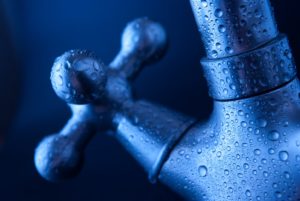
Some plumbing pipes, appliances, or fixtures behave as if they are sweating. You may notice beads of moisture or even actual drips on such plumbing surfaces. The process may look normal and harmless, but it can have serious repercussions for your house. You may stop the sweating if you know why it occurs in the first place.
Below is an overview of sweating plumbing pipes.
Contributing Factors
Sweating is actually condensation that forms on cold surfaces. The condensation occurs because the volume of water that air can hold depends on the air temperature. Air can hold more water at a higher temperature than at lower temperatures. When warm air meets cold surfaces (such as water pipes), the air cools, and some water condenses.
Below are some factors that increase the risk of condensation on your water plumbing.
Low Water Temperature
The lower your water temperature is, the colder the plumbing surfaces are. Thus, condensation on water pipes increases in the winter months because the water supply’s temperature reduces.
High Humidity
Air can hold a specific volume of water at any given temperature. Thus, the more water is in the air, the more of it will condense when the air temperature falls. Thus, your plumbing materials will sweat more if your indoor humidity is unusually high. That might be the case, for example, if you have a plumbing leak or dry clothes indoors, or your house has poor ventilation.
Poor Pipe Insulation
Condensation occurs because the cold water lowers the temperature of the plumbing materials, which then lowers the surrounding air’s temperature. Insulation material reduces the effect of the water temperature on the surrounding air, reducing condensation. The opposite is also true, and poor plumbing insulation encourages condensation.
Poor Air Circulation
The intensity of condensation also increases with the contact time between the warm, humid air and the cold plumbing surfaces. Poor air circulation gives the warm air more time to interact with the plumbing surfaces and lose some moisture. Poor ventilation and poor maintenance of HVAC systems are common causes of poor air circulation.
Metal Plumbing
Thermal conduction (rate of heat transfer) varies by material. Plumbing materials with high thermal conductivity have a greater effect on the temperature of the air around them than other materials. For example, metal has higher thermal conductivity than other plumbing materials. Thus, metal plumbing tends to sweat more than plastic plumbing.
Dangers
Plumbing condensation can affect your house in multiple ways. Below are some of these effects.
Mold Growth
Mold thrives in moist places. Thus, excess condensation will encourage mold growth in the affected areas. Mold can trigger foul odors in your house and cause respiratory health problems.
Corrosion and Rot
Condensation causes structural damage in different ways. For example, condensation on metal pipes will accelerate corrosion. The condensation can also drip on wood materials and cause rot. The damage might trigger expensive house repairs or renovations.
Pest Infestation
Many animals prefer moist to dry areas. For example, rodents or roaches are common in moist areas. Thus, plumbing condensation increases the risk of pest infestation.
Bacteria
Microorganisms, such as disease-causing bacteria, also thrive in moist places. Thus, the condensation increases your risk of different infections.
Electrical Damage
Condensation around electrical materials, such as subpanels, can cause electrical short circuits. The electrical damage can trigger fire outbreaks, electrical malfunctions, or electrical shocks.
A little sweating might not mean much. However, too much sweating is dangerous and requires diagnosis and fixing. Contact Spartan Plumbing Inc to help you with the diagnosis and solution. We have over 60 years of experience in the plumbing industry. We also have a 24/7 emergency service for issues that cannot wait for normal business hours.
